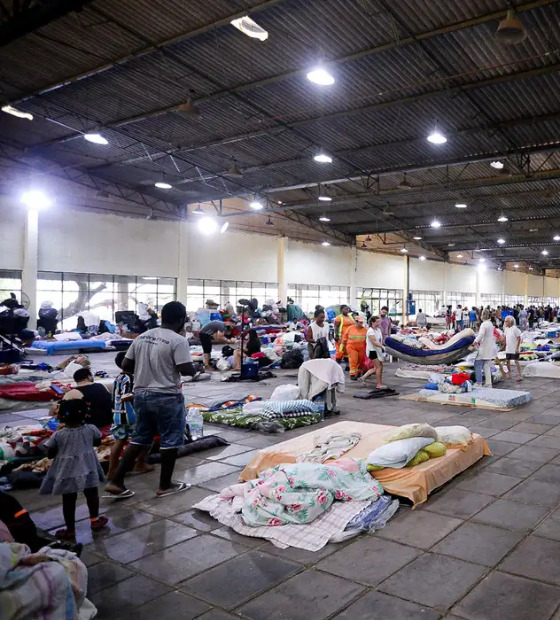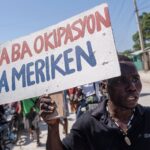Haitian and Venezuelan migrants affected by the floods in Rio Grande do Sul (RS) have reported cases of xenophobia and discrimination in shelters that accommodate victims of the climate disaster.
The United Nations Refugee Agency (UNHCR) says that 46,000 refugees live in the state of Rio Grande do Sul, mostly Venezuelans (29,000) and Haitians (12,000), followed by Cubans (1,300). .
The president of the Association of Haitians of Brazil, Anne Milceus Bruneau, works as a volunteer in a shelter in the northern area of Porto Alegre (RS) and told the media “Agencia Brasil” that xenophobia is “very great”, affecting not only Haitians but also Venezuelans.
« Meals are served raw. They ask to change their food and they refuse to do so, which means that some children and adults do not eat,” lamented the Haitian who has lived in Brazil for almost 7 years.
The president of the Association which brings together migrants from the Caribbean country says that there are cases where migrants receive one toothbrush per family and that access to water was insufficient. “I reported the situation and now it is being regularized”did he declare.
Anne added that the clothes that are in the worst condition are those distributed to migrants and that hygiene materials are not distributed equally among the homeless. She also reports that when migrants asked for a contribution that they were told they did not have, when she requests it as president of the association, she checks if there is any in stock.
Anne maintains that everyone experiences this misfortune in the same way, regardless of race, gender or nationality and says she has received reports of similar situations at various shelters.
UNHCR has confirmed that reports of xenophobia are not isolated. “ These are not specific reports. What we perceive is that at this first moment, as long as the water does not recede, the situation tends to worsen, to the extent that these refuge spaces continue Working in an improvised manner, conflicts and the risks of rights violations tend to increase,” underlined Silvia Sander, UNHCR protection officer.
“Refugees and immigrants should have the same access, since they have the same rights as Brazilians who are also affected,” Silvia added.
The state of Rio Grande do Sul was the one that welcomed the most Venezuelans during the federal government’s Operation Welcome. Of the approximately 100,000 immigrants transferred from Roraima (RR) to other states of the federation, in the process called internalization, almost 21,000 were moved to Rio Grande do Sul.
` Heavy rains in Rio Grande do Sul forced 614,000 people to leave their homes in the state, 76,000 to shelters and 538,000 others displaced to relatives or friends, according to the latest Civil Defense bulletin published Wednesday May 15 at noon.
The World Bank estimates that by 2050, approximately 17.1 million people will be internally displaced in Latin America due to climate change, representing 2.6% of the Latin American population.
Agência Brasil May 15, 2024








